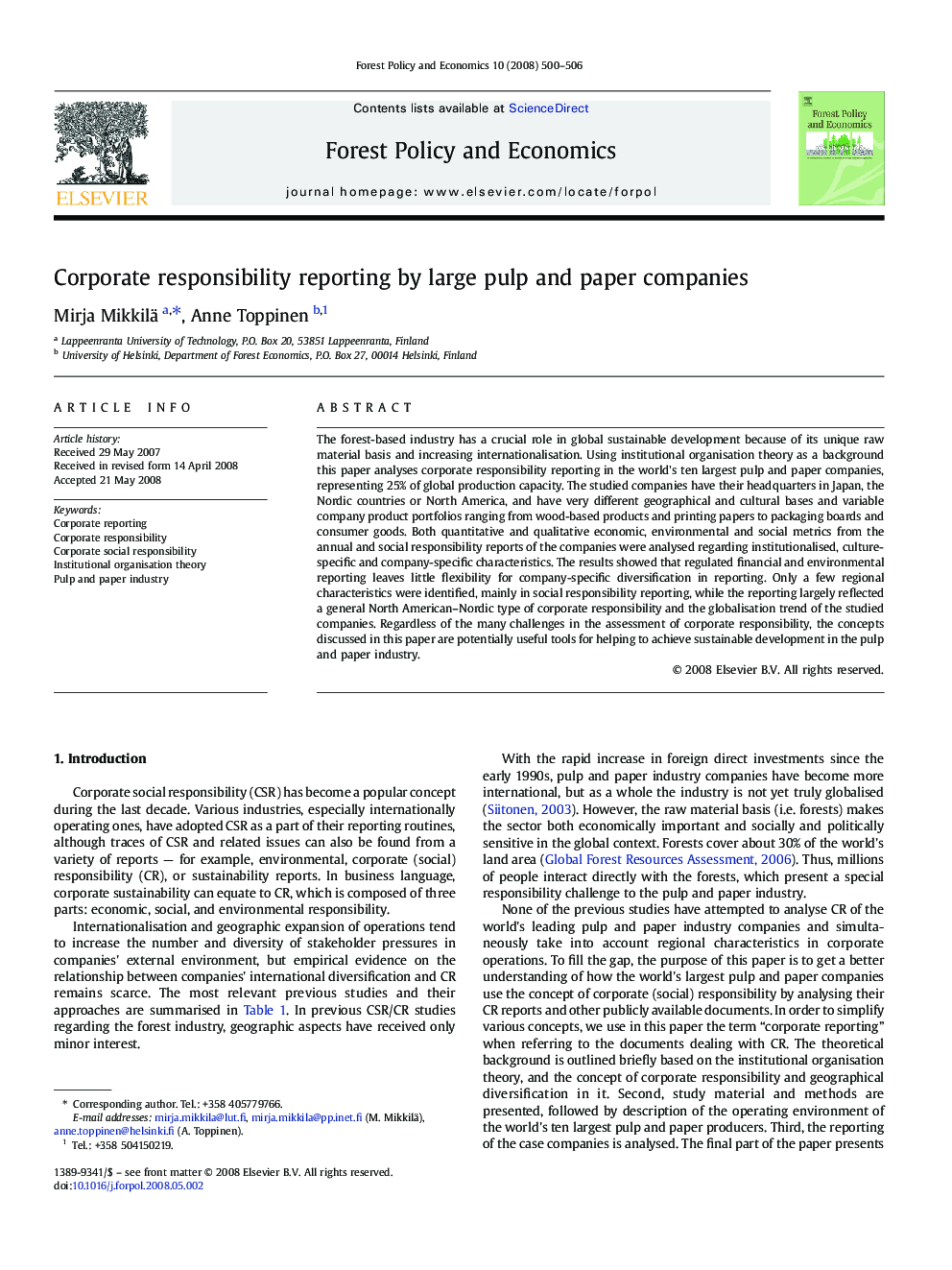| Article ID | Journal | Published Year | Pages | File Type |
|---|---|---|---|---|
| 92224 | Forest Policy and Economics | 2008 | 7 Pages |
The forest-based industry has a crucial role in global sustainable development because of its unique raw material basis and increasing internationalisation. Using institutional organisation theory as a background this paper analyses corporate responsibility reporting in the world's ten largest pulp and paper companies, representing 25% of global production capacity. The studied companies have their headquarters in Japan, the Nordic countries or North America, and have very different geographical and cultural bases and variable company product portfolios ranging from wood-based products and printing papers to packaging boards and consumer goods. Both quantitative and qualitative economic, environmental and social metrics from the annual and social responsibility reports of the companies were analysed regarding institutionalised, culture-specific and company-specific characteristics. The results showed that regulated financial and environmental reporting leaves little flexibility for company-specific diversification in reporting. Only a few regional characteristics were identified, mainly in social responsibility reporting, while the reporting largely reflected a general North American–Nordic type of corporate responsibility and the globalisation trend of the studied companies. Regardless of the many challenges in the assessment of corporate responsibility, the concepts discussed in this paper are potentially useful tools for helping to achieve sustainable development in the pulp and paper industry.
